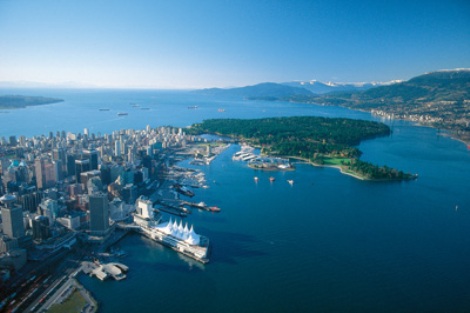The Beautiful City of Vancouver
 According to the London based Economist Group of Economist magazine fame, Vancouver is not only the best place to live in Canada but is actually the best city in the world to live in. There are many organizations that rate the best place to live, but the Economist ranks high on both the internet and through its internationally distributed print media.
According to the London based Economist Group of Economist magazine fame, Vancouver is not only the best place to live in Canada but is actually the best city in the world to live in. There are many organizations that rate the best place to live, but the Economist ranks high on both the internet and through its internationally distributed print media.
The Best and Worst Countries to Live In
The Economist also ranked 111 countries. There are, no doubt, a few curious souls wondering what flags fly over the unfortunate 110th and 111th places. I’ll give you a hint; I don’t want to slander other statehoods but if you have a company transfer sending you to Haiti or Zimbabwe you may want to reconsider your corporate allegiance.
Interestingly, though the Economist ranked Vancouver as the top city worldwide, they only ranked Canada in the top 15 of nations. If this seems questionable, you might find the United Nations 175-country Quality Of Life survey more accurate. Under this measure Canada has held an incredible decade-long position as the undisputed best place to live.
How are the “Best Places to live” Rated?
The majority of “best place to live” ratings are based on factors such as political stability, healthcare, income, culture, environment, education, infrastructure, housing, climate and recreational activities. This list fluctuates slightly from year to year as top cities in Switzerland and Australia jockey with Vancouver. However, when I wrote this, my birthplace here in the most southwestern part of Canada was still number one in the Economist’s best place to live in list.
If you’re wary of the Economist or the United Nations, I offer my personal view: having traveled to a number of major cities in Canada and the United States, my most compelling reason to rank Vancouver tops is that I have no desire to leave for another attractive North American metropolis or quaintly appealing small town.
Vancouver’s Nature and Water
Vancouver is green—not in a severe social or political vein, but quite literally and naturally green. I love trees and from most points in the city I am only a few minutes from several huge, regional parks that are densely forested and environmentally protected. Most days I cycle or walk for an hour or more into these vast and peaceful refuges. The residential neighborhood I live in also has boulevards lined with magnificent, old trees.
Vancouver has water—tons of water, pouring from the skies, surging in from the ocean, and running by in rivers and streams from surrounding mountains and lakes. The summers are mostly warm and sunny yet foliage stays green from the cool precipitation that falls with abandon in the winter and intermittently the rest of the year. Streets and surroundings are regularly washed clean by our area’s fresh rains. The salt water that splashes Vancouver shores is temperate and teaming with sea life while providing a sparkling playground to marine enthusiasts.
Vancouver’s Multicultural Society
Vancouver also has incredible community; the high standard of living here has attracted people of all nationalities for decades. The Canadian ideal of a multicultural society has blossomed on the west coast with colorful cultures from all over the globe thriving in harmony; our ethnic mix is an example to the world that peaceful coexistence is possible. While English is the predominant language, the wide-ranging tongues spoken are astounding. Just one of the many benefits of this diversity is the incredibly varied foods available in both restaurants and markets. I’ve probably eaten and socialized in most of the 175 countries the United Nations trudges through—without ever leaving this city!
Outdoor and Indoor Activities are Infinite in Vancouver
Here it is possible to choose from such dissimilar outdoor activities as skiing, golfing, hiking, tennis, cycling or sailing, sometimes all on the same day, and all within the metropolitan area. Theatre, sport, music, art, the list of entertainment is diverse, endless and even overwhelming. I am incredibly grateful for where I live and warmly invite anyone who has never visited to experience the accredited best place to live—Vancouver.


